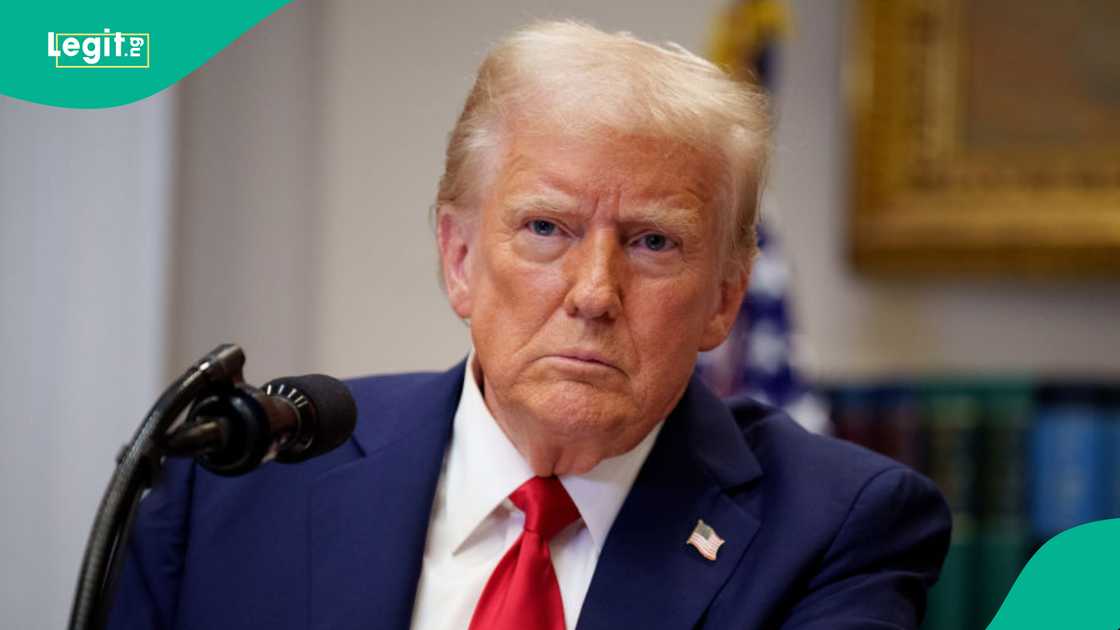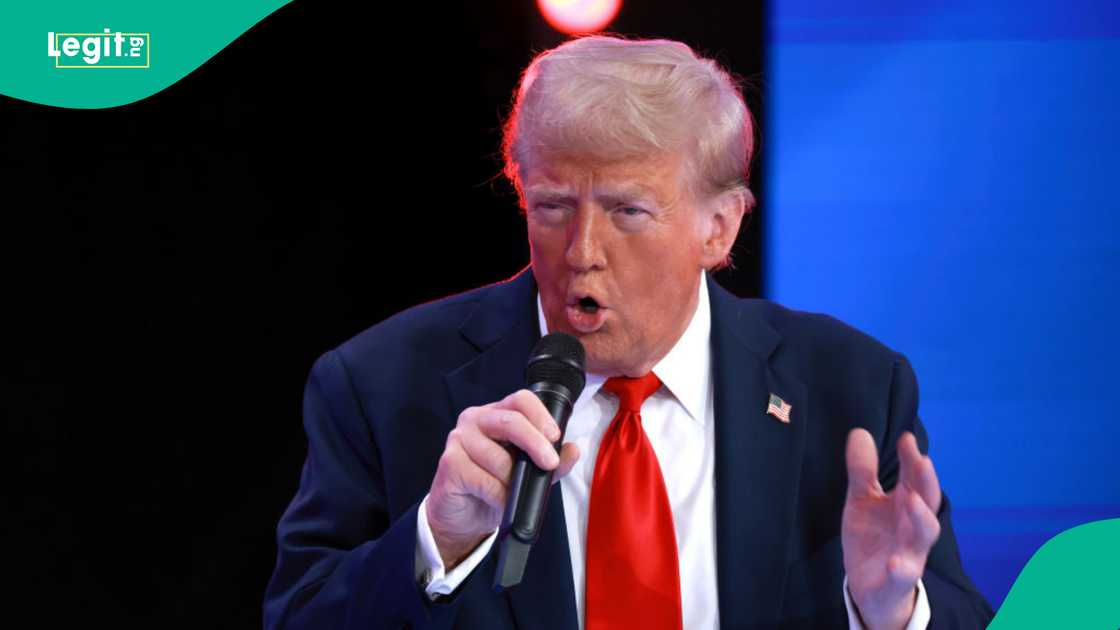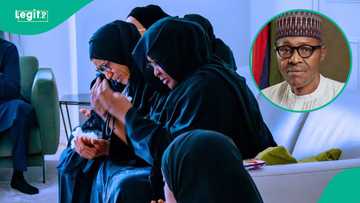Africa Reacts to US Deportation of Violent Offenders to Eswatini
- Eswatini is facing intense backlash after accepting five foreign deportees from the United States, described by US officials as “depraved monsters”
- Critics across Africa have condemned the move as a dangerous and demeaning arrangement, accusing the US of treating the continent as a dumping ground
- The deportation deal, shrouded in secrecy, has raised serious concerns about Eswatini’s sovereignty, prison conditions, and regional stability
Public anger has erupted in Eswatini and across Africa following the arrival of five foreign deportees from the United States, described by a Department of Homeland Security (DHS) spokesperson as “depraved monsters.”
The men, convicted of crimes including child rape, murder and robbery, were transferred to isolated units in Eswatini’s prisons, prompting widespread concern over the country’s role in housing individuals rejected by their home nations.

Source: Getty Images
The deportees, nationals of Jamaica, Laos, Cuba, Yemen and Vietnam, were flown to the landlocked southern African nation after what Eswatini’s acting government spokesperson Thabile Mdluli called “months of robust high-level engagements” with the US.
Mdluli insisted the men “pose no threat to the country or its citizens,” and confirmed that Eswatini would work with the US and the International Organization for Migration (IOM) to facilitate their eventual repatriation.
However, she admitted that “there are no timelines at present” for their return.
US immigration pressure on African nations
The deportation deal with Eswatini is part of a broader push by the Trump administration to secure agreements with African nations to accept third-country deportees. With logistical hurdles preventing the return of some migrants to their countries of origin, the US has reportedly approached several African governments, including Nigeria, to accept foreign nationals.
Nigeria’s foreign minister, Yusuf Tuggar, accused Washington of exerting “considerable pressure” to accept Venezuelan deportees, some of whom were incarcerated in the US. He cited increased tariffs and reduced visa validity as tactics used by the Trump administration to influence African cooperation.
A White House official told CNN that the administration was “committed to removing criminal illegal aliens from the United States,” but declined to comment on private diplomatic discussions. The US Mission in Nigeria denied that visa changes were linked to deportation negotiations, stating they were intended “to safeguard US immigration systems.”
Controversial deportation flight and supreme court ruling
On 2 December 2024, undocumented immigrants were shackled and searched before boarding a charter flight at Kansas City International Airport. They were flown to Louisiana, Texas or Arizona, and subsequently deported to their countries of origin.
Earlier this month, the US Supreme Court ruled in favour of allowing deportations to third countries with minimal notice, paving the way for the transfer of eight criminal deportees to South Sudan, a nation teetering on the brink of civil war.
Public outcry and accusations of racism
Eswatini’s decision to accept the deportees has sparked fierce criticism from civil society groups, opposition parties and regional neighbours. The People’s United Democratic Movement (PUDEMO) warned that the move “poses a serious risk to our already vulnerable communities,” which are grappling with high crime rates and overcrowded prisons.
“Our country must not be treated as a dumping ground for those deemed unfit to live elsewhere,” PUDEMO said in a statement.
Lucky Lukhele of the Swaziland Solidarity Network, based in South Africa, condemned the deportations as “clear racism,” arguing that Africa was being used as a “dumping ground for Donald Trump.” Lukhele claimed that more deportees were expected and warned that Swazi prisoners “get one meal a day” in already strained facilities.
The Multi Stakeholder Forum (MSF), a coalition of Eswatini’s civil society organisations, said the country’s “sovereignty and dignity must not be traded off for unclear deals or political expediency.”
Economic and political fallout
The economic implications of the deportation deal remain unclear, with Mdluli confirming that “the terms of the agreement (with the US) remain classified information.” Eswatini’s trade privileges with the US are already under threat, following its inclusion in Trump’s tariff list, which imposes a 10% rate on its exports starting 1 August. South Africa, Eswatini’s largest trading partner, faces a 30% tariff.
South African officials expressed concern that the deportations could destabilise the region. One government source told CNN, “There is a feeling that some inside the Trump administration could be using this (the deportation of prisoners to Eswatini) to destabilize South Africa,” citing porous borders and Eswatini’s fragile economy.
Another diplomatic source added, “Everyone knows that these fellows (the deported convicts) will want to move to South Africa,” revealing that the US had previously asked South Africa to accept migrants, a request that was refused.
Expert's warning on US-Africa relations
Ken Opalo, associate professor at Georgetown University’s School of Foreign Service, warned that African nations were being coerced into “egregious” deals with the Trump administration.
He said agreements to accept migrants or offer mineral wealth were often vague and unreliable.
“It’s foolhardy for African countries to think that they can make deals and expect a credible commitment from the White House, given their transactional nature, which means everything is subject to change,” Opalo cautioned.
As outrage continues to mount, Eswatini’s role in the US deportation strategy has become a flashpoint in broader debates over sovereignty, human rights and the ethics of international migration policy.

Source: Getty Images
Donald Trump: US deports 135 migrants
Legit.ng earlier reported that the Donald Trump-led United States (US) government has deported 135 migrants of various nationalities.
Legit.ng reports that US President Trump has moved to overhaul parts of the US immigration system since returning to office and promised "mass deportations" and arrests.
As reported on Friday, February 21, by RTE, those deported include 65 children.
Proofreading by James Ojo, copy editor at Legit.ng.
Source: Legit.ng






